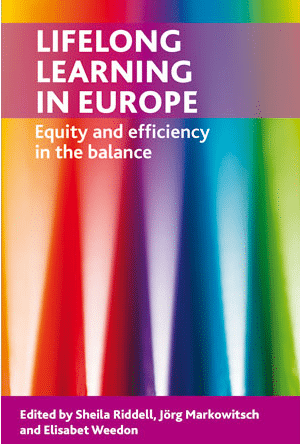 The ongoing economic crisis raises fundamental questions about the political and social goals of the European Union, particularly the feasibility of harmonising social and education policy across member states. The forward momentum of the European project is clearly faltering, raising the possibility that the high water mark of European integration has been achieved, with implications for many aspects of education and social policy, including lifelong learning.This timely book makes a major and original contribution to the development of knowledge and understanding of lifelong learning in an expanded Europe.
The ongoing economic crisis raises fundamental questions about the political and social goals of the European Union, particularly the feasibility of harmonising social and education policy across member states. The forward momentum of the European project is clearly faltering, raising the possibility that the high water mark of European integration has been achieved, with implications for many aspects of education and social policy, including lifelong learning.This timely book makes a major and original contribution to the development of knowledge and understanding of lifelong learning in an expanded Europe.